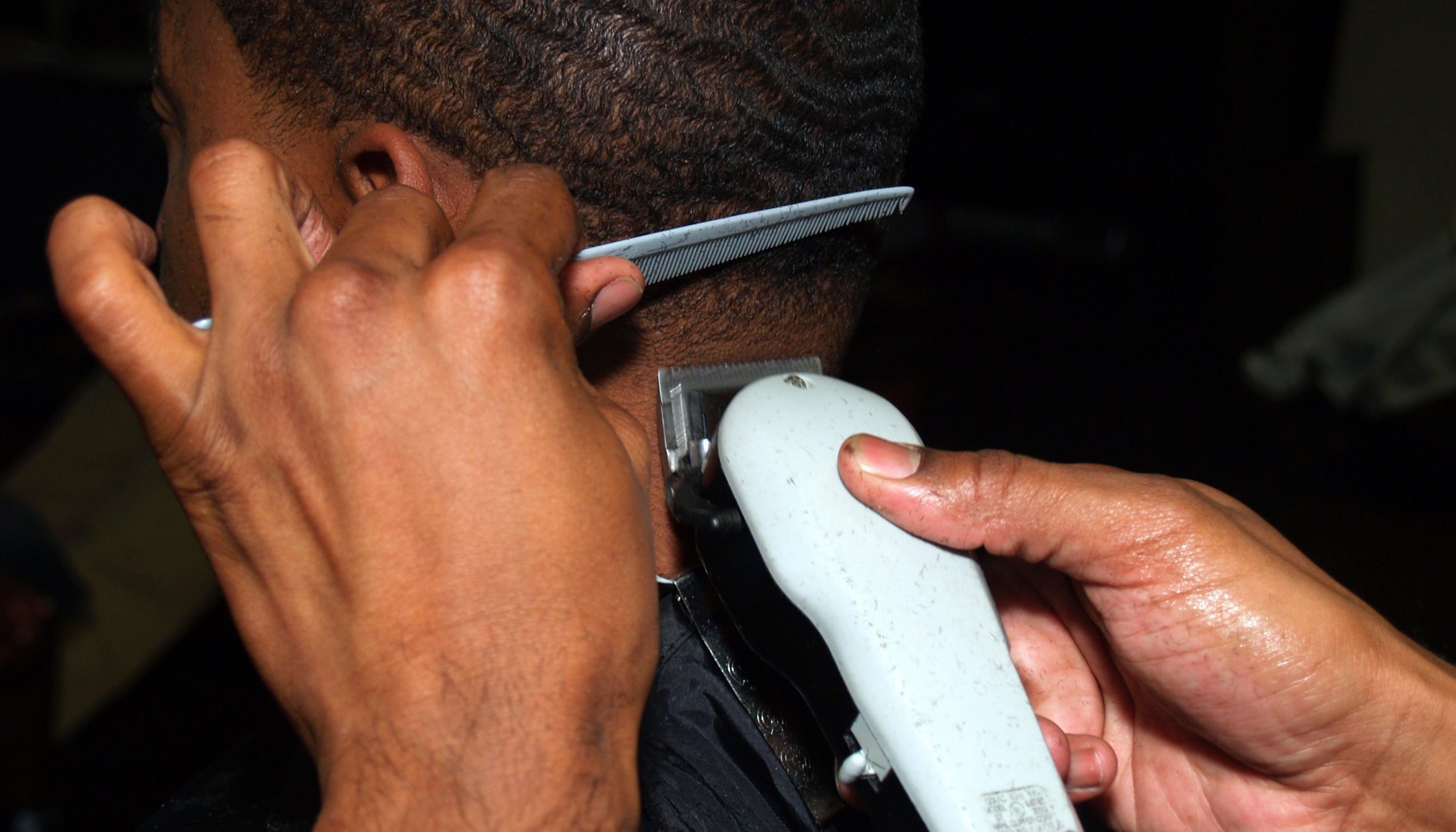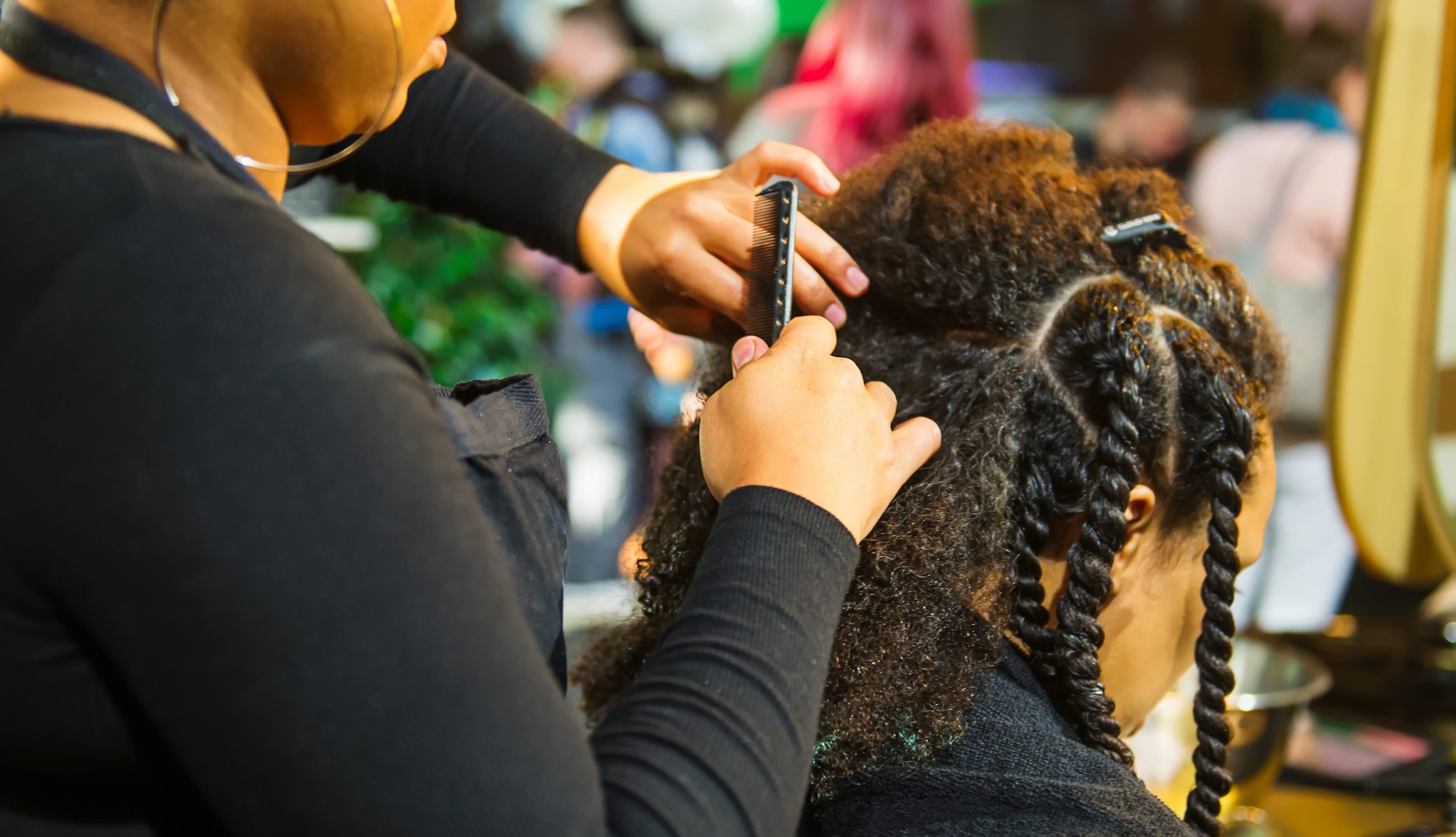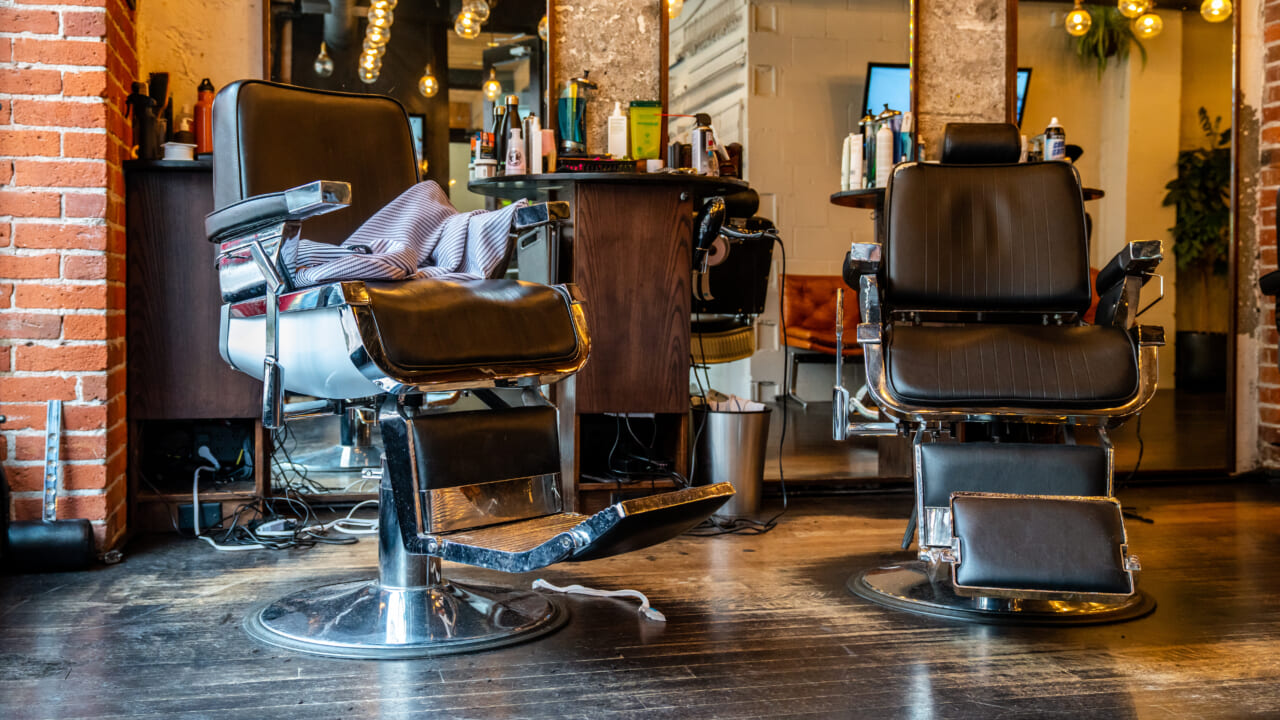Black barbers must matter for the economy to really recover
OPINION: Amid COVID-19's economic impact, Andre Perry and Tynesia Boyea-Robinson call for intervention to save Black barbershops from financial ruin
As COVID-19 forces Americans to social distance, not having access to a barber or stylist is compelling many people to do interesting things with their hair. These barbers-in-training as well as the people they attempt to shape up are learning how difficult it is to execute a tight fade.
Resorting to an old-fashioned wash and flat iron isn’t producing the results people have come to expect from their regular hairdresser. Unnerved by the thought of doing a video chat in an overgrown coif, some people are shaving their heads completely bald — a sign that stress is really kicking in.
READ MORE: 50 + Black businesses to support during the coronavirus pandemic
Along with bad haircuts, the pandemic is bringing into view the true value community-facing, Black-owned businesses, including barbershops and beauty salons, have in our lives. But federal policymakers are shaving that value — so far, COVID-19 economic relief legislation has not recognized the precarious position that Black people and their businesses are in because of past policy.

(Photo: Adobe Stock)
In March, Congress passed the $2 trillion Coronavirus Aid, Relief, and Economic Security (CARES) Act to provide immediate relief to workers and businesses during this impending recession. However, the legislation doesn’t address the historic discrimination Black business owners are saddled with. Any future spending packages for coronavirus recovery must eliminate the “Black tax” — the financial penalty that people pay for living and running businesses in Black-majority neighborhoods.
Like most Black businesses, many barbershops and salons start with significantly less capital than white-owned businesses. Only 1% of Black business owners were able to obtain loans in their founding year, compared to 7% of white entrepreneurs, according to Brookings and Gallup research.
Black people represent 12.7% of the U.S. population but only 4.3% of the nation’s 22.2 million business owners. The underrepresentation of Black business owners can be attributed in large part to Black people having less of their own money to invest and less collateral to put toward a loan due to job, housing, and financing discrimination.

(Adobe Stock Image)
A Brookings examination of housing prices showed that, in 2017, homes in Black neighborhoods were priced 23% lower than equivalent homes in white neighborhoods, amounting to $156 billion in accumulative lost equity throughout the United States. That $156 billion could have started 4.4 million Black-owned businesses, based on the average amount of Black people to start a company.
Consequently, Black-owned businesses have fewer employees. Most business owners are sole proprietors – four out of five businesses are. However, 24 in 25 Black businesses are sole proprietorships.
READ MORE: Denver man says he was pushed out of barbershop because he’s disabled
There were about 137,000 barbershops in 2012, according to the most recent data available from the Census Bureau. Nearly half (48%) were Black-owned. That’s more than the number of white-owned barbershops (about 56,000) as well as every other racial group. However, white-owned barbershops employ more people and generate more revenue — about a billion dollars more. Receipts for white-owned barbershops in 2012 yielded $1.8 billion, while Black-owned barbershops yielded $800 million.
Beauty salons, on the other hand, are a much bigger (and whiter, by ownership) industry. In 2012 there were about 786,000 beauty salons in the U.S., of which about 419,000 (53%) were white-owned and 294,000 (37%) were Black-owned. The receipts here are even more lopsided: $23.6 billion went to white-owned businesses and only $4.1 billion to Black-owned businesses.

(Photo: Adobe Stock)
The Black barbershops have less start-up capital and generate less revenue, but it’s not because of a lack of quality. Anecdotally, we can’t help but recognize the craftmanship of Black barbers during their absence right now.
Our lived experiences are supported by data: Another Brookings study on businesses in Black communities found that minority-owned businesses (i.e., Black people, Asian Americans, Latinos or Hispanics, and American Indians) in general earn significantly higher Yelp ratings than white-owned firms in the aggregate.
This effect goes away after controlling for sector, revealing no difference between racial groups in Yelp ratings — meaning quality is not the issue in Black-majority communities. As our elders say, “Our ice is just as cold.”
READ MORE: Marc Lamont Hill looks for support as bookstore closes amid COVID-19
The Brookings study also found that highly-rated businesses in Black-majority neighborhoods experience lower revenue growth than poorly-rated businesses in neighborhoods that are less than 1% Black. The lower growth is based on negative perceptions of Black-majority neighborhoods.
The number of Yelp reviews per business sharply falls as the ZIP code’s Black population increases, suggesting that negative perceptions aren’t rooted in the quality of the product. They are based on a dim view of Black people who live around the business. As a result, businesses in Black neighborhoods lose billions in unrealized revenue each year, ranging from $1.3 billion as a low estimate to as high as $3.9 billion.

(Photo: Adobe Stock)
The lack of startup capital and unrealized profits — both results of racism — are main reasons why Black businesses have fewer employees. The Association for Enterprise Opportunity, a non-profit think tank, estimated in a 2018 report that “if Black-owned businesses were able to reach employment parity with all privately held U.S. firms, close to 600,000 new jobs would be created, and $55 billion would be added to the economy.”
The epidemic reveals our interconnectedness in ways that can’t be ignored. When our neighbors our sick, we are vulnerable. Black economic pain throttles the entire economy. However, privileged people simply did not feel it – until this COVID-19 moment.
This is why federal lawmakers must include additional COVID-19 stimulus funding for business owners in areas in which housing devaluation takes place. In addition, the Treasury Department, which has been charged with distributing and managing the spending package, must increase resources to Black-owned banks and Black-led community development financial institutions that are proximate and familiar with the needs of Black business owners.

Photo: Fotolia/Kurhan)
We understand the value barbers and stylists have in our lives. Black communities, barbershops, and hair salons make us feel good inside and out. Barbers and hairdressers are informal counselors who lift our esteem. These storefronts can be social organizations as much as they are commercial hubs. They represent some of the few places in which poor, middle-class, and high-income people interact. If the hair industry struggles, the economic health of our communities struggles as well.
In other words, when Black businesses aren’t thriving, neither are the rest of us. We must fight for federal legislation that recognizes the value of our great businesses during this time of crisis.
Andre Perry is a fellow at the Brookings Institution and is author of the forthcoming book Know Your Price.
Tynesia Boyea-Robinson is president and CEO of CapEQ.
